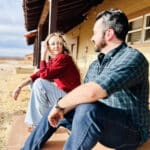Recovering from drug addiction can be challenging, but no one needs to face it alone. Support groups play a significant role in holistic drug rehab, providing individuals with a caring community to share their experiences, struggles, and triumphs. In this blog, we will explore the ways support groups contribute to the recovery process, offering invaluable benefits and promoting a sense of belonging on the path to healing and lasting sobriety.
Seven Arrows Recovery is a Tuscon inpatient drug rehab that offers comprehensive, holistic recovery care. Contact us today to learn more about how our program can help you heal.
Shared Understanding and Empathy
Support groups create a safe space where individuals can openly discuss their addiction journey without fear of judgment. Being among peers who have faced similar challenges fosters a sense of shared understanding and empathy. Participants can relate to one another’s struggles, providing comfort and reassurance that they are not alone in their battle against addiction.
Unconditional Support and Encouragement
In support groups, each member is embraced with unconditional support and encouragement. The group serves as a source of motivation and inspiration, uplifting individuals during challenging times and celebrating their progress and successes. This positive reinforcement enhances self-esteem and fosters a belief in one’s ability to overcome addiction.
Learning from Others’ Experiences
Support groups offer a wealth of knowledge and experience from individuals at various stages of recovery. Listening to others’ stories and strategies for coping with cravings, triggers, and setbacks can provide valuable insights and practical tools for managing challenges. Learning from peers who have successfully navigated similar obstacles can be empowering and enlightening.
Accountability and Commitment
Being part of a support group creates a sense of accountability. Members feel committed to their recovery goals as they share their progress with the group. This accountability fosters a greater dedication to sobriety and encourages individuals to stay on track, even when facing difficult circumstances.
Non-Judgmental Environment
In holistic drug rehab support groups, individuals can speak openly about their struggles without fear of judgment. The environment is non-judgmental and free from criticism. This safe space allows for open and honest communication, which is essential for addressing the emotional aspects of addiction and healing underlying traumas.
Building Healthy Relationships
Through support groups, individuals can form healthy and meaningful connections with others on the same journey. These bonds can extend beyond the group setting and become lasting friendships based on mutual understanding and the shared commitment to recovery. Building positive relationships strengthens the support network during and after rehab.
Continued Support in Long-Term Recovery
Support groups are not limited to the duration of the rehab program. Many groups continue to meet post-treatment, providing ongoing support for individuals in long-term recovery. This sustained support can be instrumental in maintaining sobriety and navigating the challenges of everyday life without drugs.
Seven Arrows Recovery is an Arizona Drug Rehab That Can Help
Support groups play a vital role in holistic drug rehab, offering a multitude of benefits for individuals on the path to recovery. From fostering a sense of shared understanding and empathy to providing unconditional support, encouragement, and accountability, these groups play a pivotal role in the healing process. Participants learn from each other’s experiences, build healthy relationships, and find a non-judgmental environment to express their struggles and triumphs. The ongoing support of a support group can extend well beyond the rehab program, helping individuals sustain their recovery journey with a sense of purpose, belonging, and hope.





